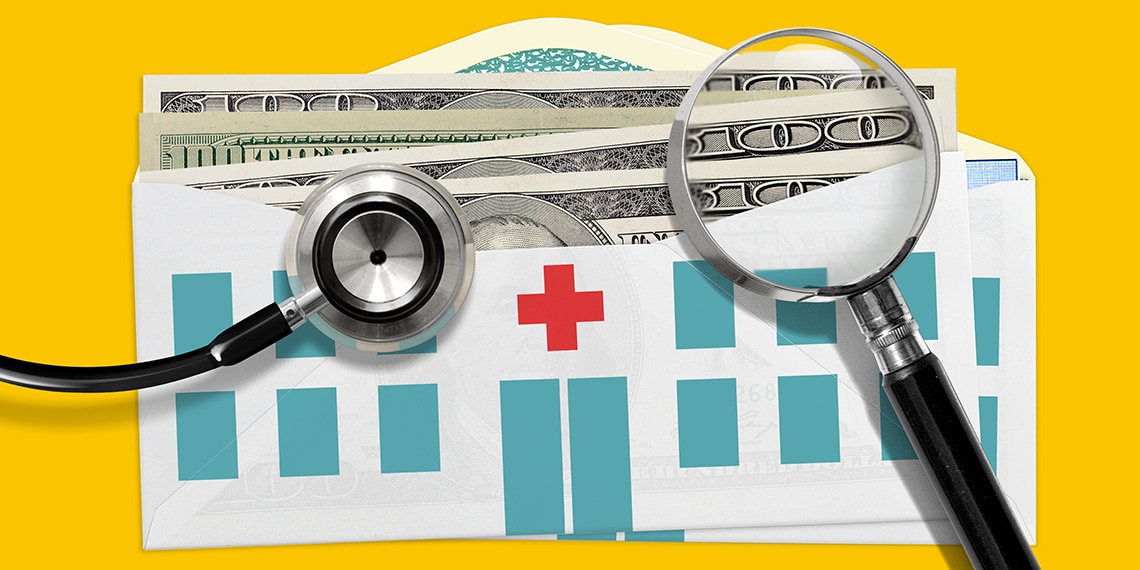
If you need to have a medical procedure, the last thing you want to worry about is how it will affect your budget. But the fact is, as we all know, medical costs can quickly add up, and sometimes it can be difficult to pay them.
While you might think that a medical bill is set in stone, there is actually a lot you can do to negotiate the costs down. Follow these steps to work with your doctor on reaching an agreement that works for your budget.
Know What Your Insurance Covers—And What It Doesn’t
Before you even walk into a doctor’s office, call your insurance company to ask about copays and the costs of in-network vs. out-of-network care. Most of these details will be available on your insurer’s website or in the policy documents they send to you.
If you have an appointment with a doctor who isn’t in your network, consider seeing someone else. Ask your insurance provider to give you a list of doctors within your network, because that can drastically lower your out-of-pocket costs. If you’re not happy with what your insurance covers, you can even consider changing your insurance to cover medical costs in the future.
Inform Yourself About Standard Costs and Fees
Before you get to the point of negotiation, research the normal rates for the service you need. Get a sense of what procedures, prescriptions and visits cost by looking online and discussing it with friends and family.
You can even do some comparison shopping. Call several doctor’s offices and ask what they charge for certain procedures.
Start the Money Conversation Early
Unless you are having an unexpected emergency procedure, talk with your doctor’s financial staff as early as possible to give yourself time to negotiate. Ask them if paying in cash up front could lower your bill.
If they can’t offer any up-front cash discount, ask your doctor’s staff about payment plans that they offer so that you can break monthly payments down in a way that works for your financial situation.
Always stay polite and professional. Doctors and their staff are often under a lot of stress, and they’ll be far likelier to discuss your options if you’re calm, collected and respectful.
Get a Second Opinion
It’s quite common for patients to seek a second opinion for a diagnosis. If your doctor is suggesting a certain procedure, ask why and whether it’s completely necessary. If you’re not convinced, ask another doctor for their opinion.
When you get a second opinion, ask for a second quote, too. You might find that one doctor in your area charges much more than another for the exact same service. Even two doctors who are both covered by your insurance might charge different rates.
Get an Itemized Bill
Ask your doctor for a line-by-line breakdown of all medical costs. This will show you exactly what each fee is for and give you a better sense of what line items, if any, could be cut.
Don’t forget to check for errors, too. Mistakes happen, and sometimes items can show up on your bill by mistake. If you’re not sure why something is on your itemized bill, ask questions.
Save Money to Pay up Front Instead of Using Credit
An ounce of prevention is worth a pound of cure, as the old saying goes. This is usually applied to health, but it applies to your finances, too. By planning ahead and saving for unexpected medical costs, you can avoid the shock of getting a large bill and put yourself in a place where you can withdraw from a savings account instead of charging it to a high-interest credit card.
Health savings accounts (HSAs) are an excellent way to do this. HSAs allow you to put pretax earnings into an account and withdraw money tax-free for doctor’s visits, surgeries and even prescription drugs.
Bring in Outside Help
It’s often difficult for patients to navigate the bureaucracy of a hospital or doctor’s office. If you’re not getting anywhere with the tips above, consider bringing in a professional negotiator, a healthcare advocate or even a lawyer, if necessary. These professionals have extensive experience working with doctors to lower their clients’ bills, and they might be able to help.
Consider Asking for Medical Forgiveness
If you absolutely cannot pay a bill because of hardship, show your provider documented proof of your situation and ask what could be done. Depending on your income, you may qualify for financial aid, free or reduced-cost care or a reduced-interest repayment plan.
The bottom line is that it pays to be an active, informed patient. If you’re experiencing medical hardship, don’t be afraid to talk to your doctor about how you can get the care you need without breaking the bank.
William Myers is a financial writer based in Dallas.
READ MORE: Personal Finance 301: Health Savings Accounts

